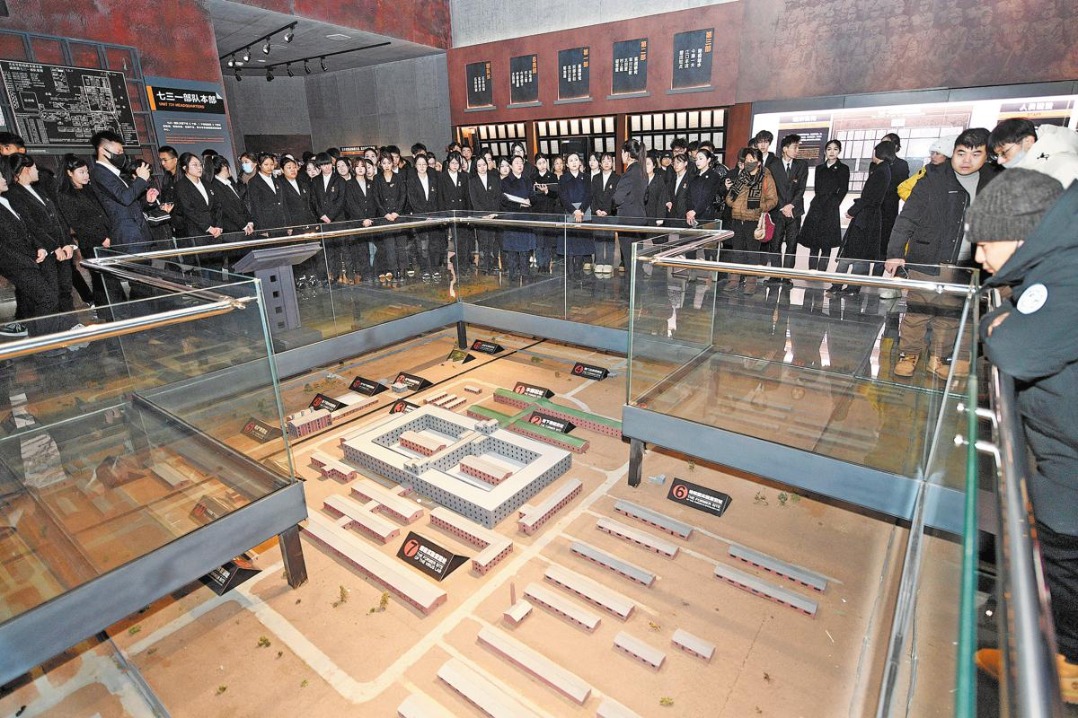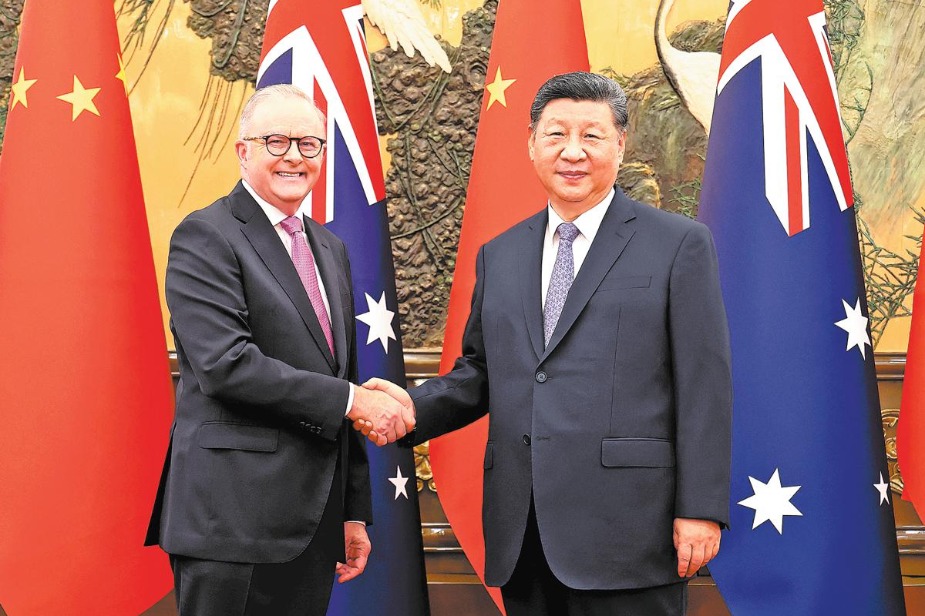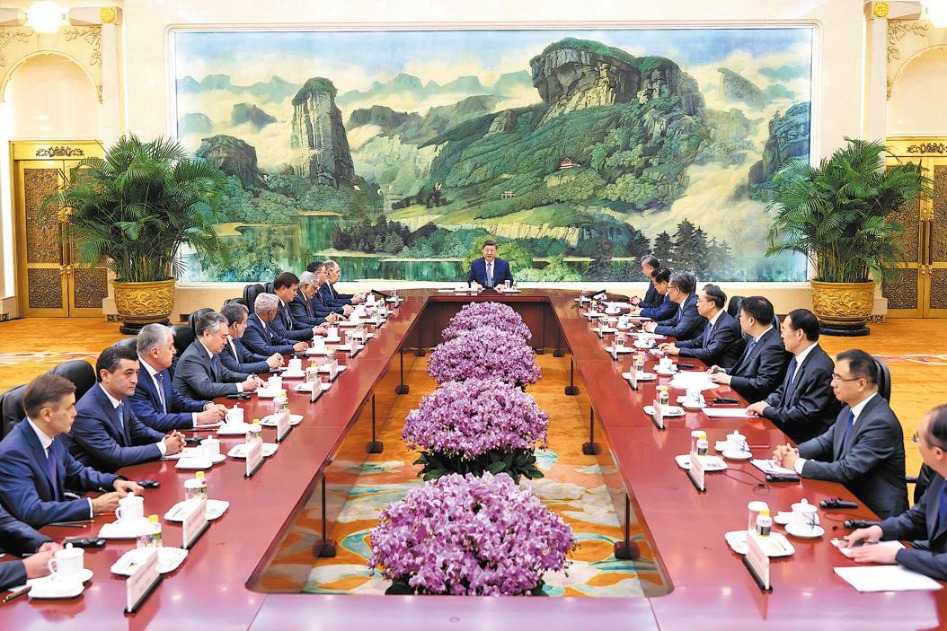Happiness quotient

|
|
Randy Williams, a 50-year-old US citizen, has adopted Ningbo in Zhejiang province as his home. In his 11 years in this coastal town in East China, Williams has opened three businesses, the latest a pottery workshop, and says he would never think of leaving. What has attracted many entrepreneurs, from overseas and other parts of China, to Ningbo in particular and Zhejiang in general are, as Williams says, the good business environment, agreeable living conditions and rich cultural heritage.
"The city is business friendly and the people here are willing to spend money and enjoy life," he says. They are also good at making money, of course.
The annual disposable income of Ningbo citizens doubled in the past five years to more than 30,000 yuan ($4,504) in 2010, the Ningbo statistics bureau says. In 2006, the average Ningbo resident spent 306 yuan a year on entertainment and 947 yuan on dinning out. In 2009, these had risen to 770 yuan and 1,477 yuan.
Williams says the surge in living standards is "a miracle".
Ningbo is not the only "miracle" in this most prosperous province.
Hangzhou, the provincial capital, and Jinhua were included with Ningbo in the list of 2010 Top 10 Happiest Chinese Cities compiled by China Institute of City Competitiveness. Zhejiang is the only province with three cities in the list.
Xiao Taohong, 32, a salesman in Hangzhou, says there are good reasons to feel happy in Zhejiang.
"Zhejiang residents are lucky. We are blessed with abundant natural resources and enjoy the fruits of rapid economic development," he says.
Xiao, a keen reader of local newspapers and an active debater in several online forums, says he has noticed obvious shifts in the emphasis of the 12th Five-Year Plan (2011-2015).
"In the past, people thought these plans had little to do with daily life because national policies used to emphasize mainly on GDP growth and economic development," he says.
"This year, however, it seems that local governments are paying more attention to how people feel than just cold economic figures."
The emphasis on healthcare, education, housing, the widening income gap between urban and rural areas, environmental protection, traffic, career opportunities, public security, convenience of life and even entertainment shows that the government is determined to address issues important to the people, Xiao says.
"And I am very glad to see that all these issues are covered in the plan."
Zong Weihao, a 22-year-old Jinhua native who runs an online stationary store, says he cares most about making money because "with money people can secure many things they need, especially a home".
Zong says he finds Zhejiang ideal for business, because most people he deals with are efficient and trustworthy.
It does not take a long time to get official paperwork done, and banking and courier services are convenient and reliable, he says.
What's more, the provincial and city governments of Zhejiang are focusing on addressing the widening income gap between the rich and poor to ensure the less fortunate citizens will get a fair share of the fruit of economic development.
Ningbo, for instance, will pursue a policy of equitable distribution of wealth in the next five years, Wang Xiaoguang, deputy director of Ningbo Bureau of Labor and Social Security, says.
More than 21,000 enterprises employing about 1.3 million workers in the city have signed agreements for collective salary negotiations. The city government expects all enterprises in the city will sign up for the plan in three years. Enterprises will be guided and supervised to establish wage levels according to the law, the minimum wage standard will be adjusted and salaries for low-income workers will be improved, the government says.
Xiao says that he and many of his friends wish to see a city with more space for leisure and entertainment.
"If you want to make a happy city, you need to make people in the city feel happy," he says. "Is there anything better than taking families to parks and museums on weekends without worrying about money and work?"
In June, Liu Ting, deputy director with development and reform commission of Zhejiang province, listed the problems of focusing on economic growth rather than sustainable development. He said that in the past, preoccupation with only chasing growth, and over-reliance on exports, had led to unstable economic development. As well, obsession with manufacturing resulted in neglect of the service industry.
Such an imbalanced growth had led to a widening gap between the development of rural and urban areas and deepened the uneven distribution of wealth.
Liu says developing the service industry, which has been incorporated in the 12th Five-Year Plan of Zhejiang province, is essential to fixing those problems.
Wang Xiaoyu, 22, a migrant worker at a hotel in Jinhua, says she wishes that more of her fellow villagers can benefit from the development of the service industry.
"I hope people from rural areas can find work in banks, law firms and other professions that offer higher salaries," she says.
Wang says her younger brother, who will take the National College Entrance Exam next summer, wants to study finance so that he can work in a bank after graduation and support his parents.
A survey by Yang Jianhua, a researcher with Zhejiang Academy of Social Sciences, shows that Zhejiang ranks top among all the provinces in terms of income in both the rural and urban areas. But the income gap between the rural and urban areas has remained large, the survey shows.
Wang is still quite positive about her future because she can find many opportunities to change to a better job with more money.
"People always say that Zhejiang is a place where you can shine if you are talented and diligent enough," she says. "All we expect is a fair chance to succeed in life."
Today's Top News
- Beijing supports Tehran in maintaining dialogue
- Stabilizing global supply chains vital to intl market
- Visa facilitation steps boost number of foreign visitors
- Japan hypes excuse for its military build-up: China Daily editorial
- Philippine defense secretary's remarks undermine regional peace efforts
- Mainland strongly opposes Lai's planned 'transit' through US































